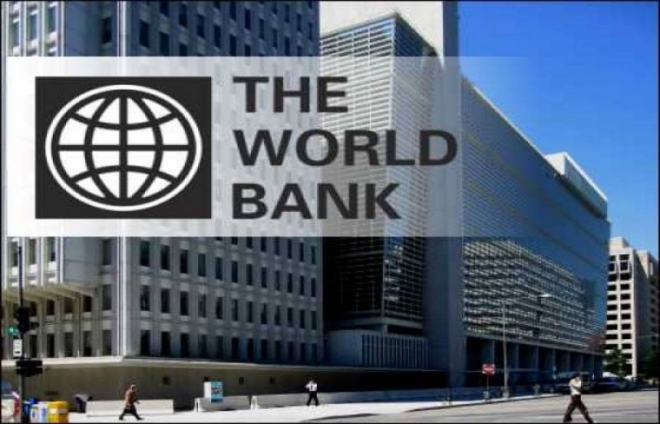
Audio By Carbonatix
A new report published by the World Bank says Sub-Saharan African countries, including Ghana display the largest gap between the availability of digital infrastructure and people’s actual usage.
According to numbers collected by the Global System for Mobile Communications Association using a methodology focused on unique subscribers, 84% of a given country’s population had at least some level of 3G mobile internet availability.
In addition, 63% had some level of 4G mobile internet services, but only 22% were using mobile internet services at the end of 2021.
“Usage rates range from a low of 6% in South Sudan to 53% in South Africa, underscoring the heterogeneity of average use and the need for differentiated policy reforms across countries,” the report said.
With Africa’s share of the global workforce projected to become the largest in the world by 2100, it is critical for African countries to increase the uptake of digital technologies to drive employment growth for the more than 22 million Africans joining the workforce each year, emphasizes a new report released today.
“The minimal usage of mobile internet is a lost opportunity for inclusive growth in Africa,” said Andrew Dabalen, World Bank Chief Economist for Africa. “Closing the uptake gap would increase the continent’s potential to create jobs for its growing population and boost economic recovery in a highly digitalized world.”
Even though technology and innovation are known to drive long-term economic growth and can lead to much-needed modernization in economic activities across agriculture, manufacturing and services, the digital divide continues to grow between large formal and micro-sized informal enterprises, between young men- and older women-owned enterprises, and between richer, urban, and more educated households and poorer, rural, and less educated households.
Only 2% of micro-sized firms owned by young women and 8% of micro-firms owned by young men use a computer.
The report highlights evidence that internet availability has a positive impact on creating jobs and reducing poverty in African countries.
For example, in Nigeria, labor force participation and wage employment increased by 3 and 1 percentage points, respectively, after three or more years of exposure in areas with internet availability. Job estimates for Tanzania found that working-age individuals living in areas with internet availability witnessed increases of 8 percentage points in labor force participation and 4 percentage points in wage employment, after three years of exposure.
Moreover, the proportion of households falling below the national basic need poverty line dropped by 7 percentage points.
“To transform internet availability into productive usage and job growth, the region needs affordable access, digital skills and digital technologies that meet the needs of Africans,” said Christine Zhenwei Qiang, World Bank Global Director for Digital Development. “Continuous sector reforms and targeted public investments that support digital economy foundations and digital uptake can help close the digital divide and unleash tremendous potential for more and better jobs for Africa’s growing population.”
For the 40% of Africans who fall below the global extreme poverty line, the cost of basic mobile data plans is often out of reach. Small and medium-sized businesses in Africa also face more expensive data plans than businesses in other regions. To bring down costs, governments should aim to promote competition in the provision of digital infrastructure and reduce operational costs.
To boost productive usage, governments should implement policies that support the development of more attractive digital solutions geared to the skills and productive needs people have while building broader awareness and education. Policies that foster innovation and support digital start-up entrepreneurs are essential to ensure that more Africans use the internet for jobs and learning, which will lead to higher standards of living. When digital technologies better meet the needs of people, households and firms, demand for their use will also increase, making internet expansion more commercially viable, and supporting a virtuous cycle of technology-led transformation.
For the purposes of the report, digital technologies are defined broadly to include not only digital and data infrastructure, broadband internet, smartphones, tablets, and computers, but also a wide range of more specialized productivity-enhancing digital solutions ranging from communications, management upgrading, and worker training to procurement, production, marketing, logistics, and financing.
Latest Stories
-
Gunnyboy emerges as one of Ghana’s fast-rising dancehall voices in 2026
9 seconds -
National Investment Bank donates GH₵100K to Ghana Sports Fund
15 minutes -
Majority rejects NPP’s call to sack COCOBOD CEO Randy Abbey over cocoa price cut
31 minutes -
GJA renews call for passage of Broadcasting Bill on World Radio Day
38 minutes -
GSS to commence use of rebased inflation and GDP numbers from 2027
42 minutes -
Indian High Commissioner to Ghana inaugurates Ghana’s first modern Ayurvedic Clinic
58 minutes -
NCCE, partners sensitise residents on social auditing
1 hour -
Finance Minister announces new policy to boost local processing of cocoa
1 hour -
Minister of Youth Development calls for partnership with Christian Council to tackle youth challenges
1 hour -
Trader in court for wearing military uniform to impress nurse at 37 Military Hospital
2 hours -
TAG Transport CEO receives ‘Green Mobility & Sustainable Transport Personality’ honour
2 hours -
Inflation decline hasn’t brought relief to consumers – Expert
2 hours -
Ashanti RCC directs MMDAs to issue stickers only to legitimate businesses
2 hours -
Ministry bares teeth at lawlessness in schools
2 hours -
Ring gone, wife gone: Husband cries out on Obra Show after spouse vanishes with baggage
2 hours

